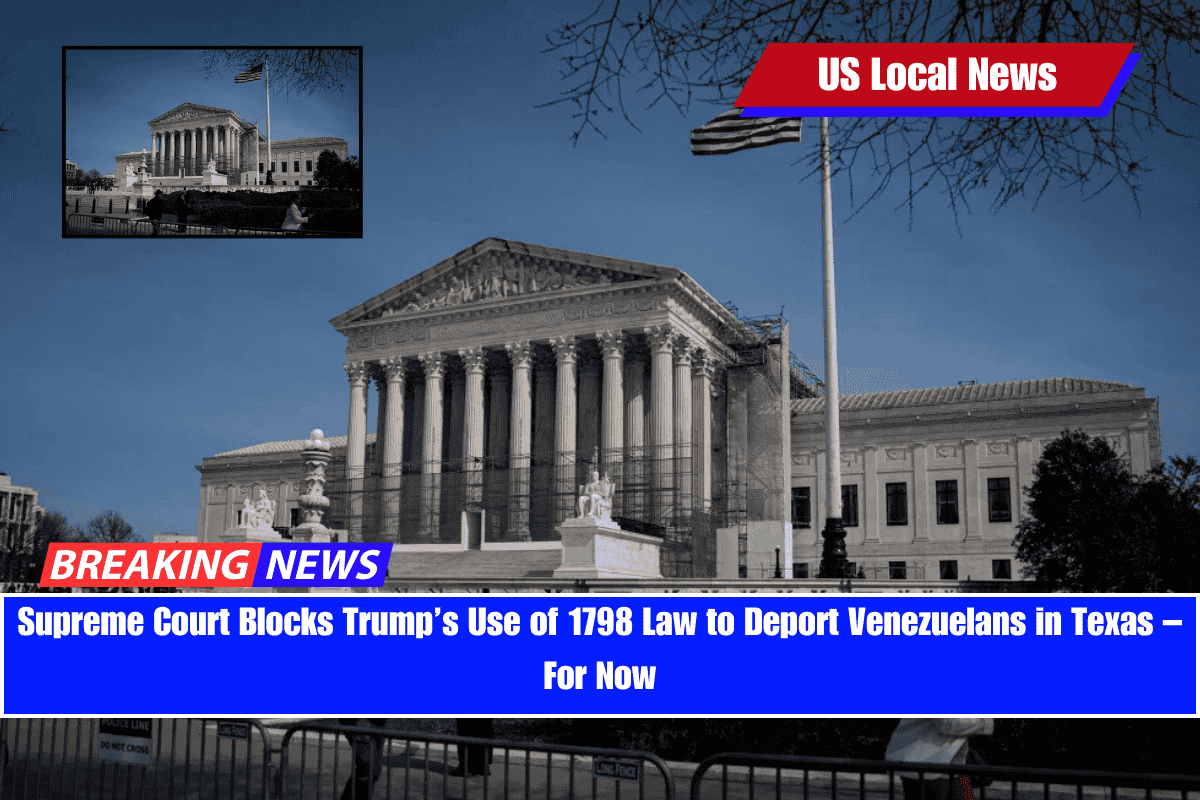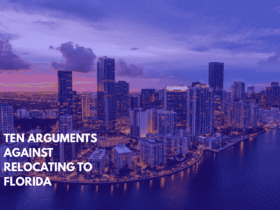In a major ruling, the Supreme Court of the United States has temporarily stopped President Donald Trump from deporting a group of Venezuelan immigrants from Texas under the Alien Enemies Act, a law from 1798. This decision is a setback for the Trump administration, which has been using the old wartime law to fast-track deportations without regular legal reviews.
Although the ruling is not permanent, it puts the brakes on these removals while the case goes back to a lower court for deeper examination.
What the Supreme Court Decided
The court said migrants must be given proper notice and legal process before being deported. In some cases, they were reportedly given just 24 hours’ notice without clear information on how to defend themselves legally. The justices criticised this, saying it does not meet the standards of due process.
The court also questioned the handling of the case by Judge James Hendrix, who had refused to pause the deportations earlier. The case now goes back to the 5th Circuit Court of Appeals in New Orleans for a full legal review.
Why It Matters
President Trump has been using the Alien Enemies Act as a way to speed up deportations, especially of Venezuelans accused of gang ties. The government argued it was necessary for national security, especially against the Venezuelan gang Tren de Aragua.
But the court said that even in such situations, migrants deserve the right to challenge their deportation in court. The justices referred to a past case involving Kilmar Abrego Garcia, who was wrongly deported to El Salvador and could not be brought back — proving the dangers of quick removals.
Trump Reacts to Court’s Decision
President Trump strongly disagreed with the ruling. He posted on social media saying, “The Supreme Court WON’T ALLOW US TO GET CRIMINALS OUT OF OUR COUNTRY.” His administration had earlier rushed to put hundreds of Venezuelans on flights to El Salvador before courts could block the actions.
Still, courts in Texas, Nevada, Colorado, and other states have also raised questions about the legality of using this old law.
Legal Battle Not Over Yet
The Supreme Court’s decision is temporary. The lower courts will now review whether Trump’s use of the law is constitutional and what kind of legal notice migrants should get.
The American Civil Liberties Union (ACLU) is leading the legal fight for the migrants. They filed cases called habeas corpus petitions, which are used when people believe they’re being detained or removed unlawfully.
Several federal courts have already said the law cannot be used — at least for now — while these cases are being considered.
What Happened in Texas
In mid-April, immigrants detained at Bluebonnet Detention Center in Texas started receiving notices saying they would be deported under the Alien Enemies Act — with less than 24 hours’ notice. Two migrants filed a case in Abilene, Texas, asking for emergency protection.
Judge Hendrix refused, saying the government claimed it wouldn’t deport them immediately. But the Supreme Court disagreed and said the judge’s delay caused real harm by denying urgent legal protection.
What’s Next?
The case now returns to the 5th Circuit Court. Until it rules, deportations under the Alien Enemies Act from Texas remain on hold. Legal experts say the issue might come back to the Supreme Court for a final decision.
Justice Brett Kavanaugh said the court should have taken up the full case now instead of waiting, arguing that a fast, clear ruling is needed. But for now, the pause gives immigrant rights groups time to fight the law in court.











Leave a Reply